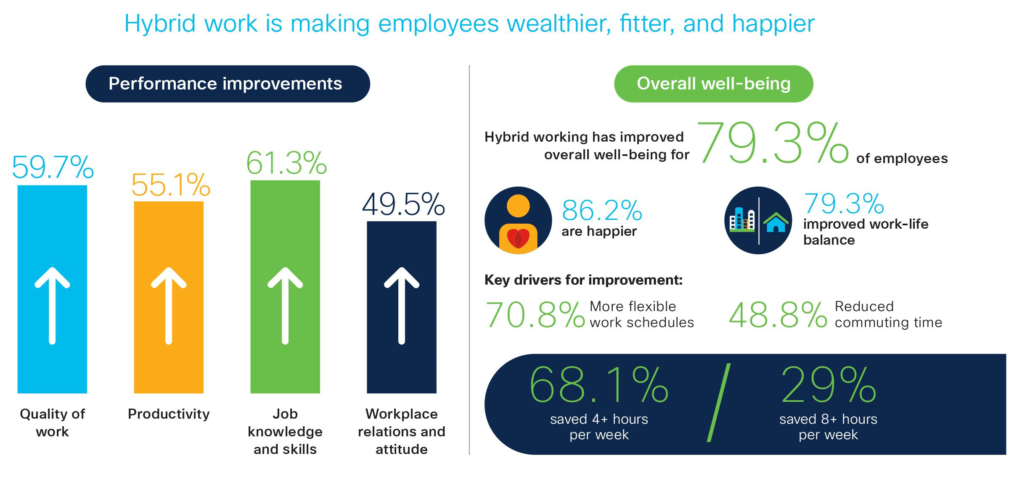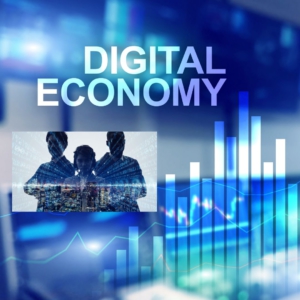In Malaysia’s rapidly evolving digital landscape, the future belongs to those who can adapt and thrive in the face of change. As industries across the nation embrace digital transformation, the need for a resilient workforce, one that is agile, skilled, and forward-thinking, has never been more critical. For businesses to remain competitive and innovative, it is essential to implement HR strategies that not only meet the challenges of today but also anticipate the demands of tomorrow. This is not just about surviving in the digital age; it is about leading the charge!
In this fast-paced digital economy, where initiatives like the Malaysia Digital Economy Blueprint (MyDIGITAL) and the Fourth Industrial Revolution (IR 4.0) are reshaping industries, the ability to build and sustain such a resilient workforce is more crucial than ever. As companies across sectors (from manufacturing hubs in Penang to tech startups in Kuala Lumpur) adapt to rapid digitalization, the role of HR in guiding this transformation becomes pivotal. To remain competitive, businesses must implement HR strategies that not only address current workforce challenges but also equip their teams to lead in a future driven by technology and innovation. This isn’t just about keeping pace with change; it is about positioning your organization at the forefront of Malaysia’s digital revolution!
As Malaysia navigates its digital transformation, the role of HR in shaping a resilient and adaptable workforce cannot be overstated. To ensure your business not only survives but thrives in this new era, it is crucial to implement strategic HR practices that address the specific challenges of the Malaysian market. By focusing on key areas such as flexible work models, continuous learning, and advanced HR technology, companies can position themselves at the forefront of Malaysia’s digital revolution. Let’s explore these essential strategies and how they can empower your workforce to lead in the digital age.
1. Embrace Flexible Work Models
52% of Malaysian employers are supportive of their employees adopting a fully remote or hybrid work arrangement.
Over a third (39%) of employees in Malaysia (global 34%) are likely to quit their jobs in the next 12 months; with better overall wellbeing programs, greater flexibility for remote work and more competitive salary packages elsewhere as top reasons for leaving.
This trend reflects a growing recognition of the benefits that remote work offers, including reduced commuting stress and enhanced work-life balance, as digital tools make such arrangements increasingly feasible. To adapt to, employers should focus on enhancing employee satisfaction and loyalty. By adopting flexible work arrangements and improving overall wellbeing programs, companies can increase job satisfaction, leading to a more engaged and productive workforce. On top of that, offering competitive salaries and flexibility can attract top talent in a competitive job market, distinguishing an organization as a preferred employer.
Companies that fail to adapt may struggle to keep valuable employees, resulting in a loss of organizational knowledge and expertise. Embracing remote and hybrid work models not only aligns with global trends but also positions companies as modern and adaptable, crucial for remaining competitive in today’s fast-paced business environment.
Addressing to these factors is essential for improving retention and reducing recruitment costs. Malaysian employers who proactively support flexible work arrangements, enhance employee wellbeing, and offer competitive compensation will likely see increased satisfaction, reduced turnover, and a stronger market position, effectively navigating the challenges and opportunities of the modern workforce.
Image source: https://focusmalaysia.my/study-hybrid-work-life-enhances-employee-wellbeing-and-productivity/
Side note:
Effective from Jan 1 2023, the Employment Act 1955 (EA 1955) has incorporated the amendments introduced by the Employment (Amendment) Act 2022.
With that, the EA 1955 has now formally recognised the concept of flexible working arrangement (“FWA”) in Malaysia. Section 60P and Section 60Q are the two new sections that provide for FWA in the latest EA 1955.
More information: https://jtksm.mohr.gov.my/sites/default/files/2023-11/Akta%20Kerja%201955%20%28Akta%20265%29.pdf
2. Prioritize Continuous Learning and Development
In today’s dynamic business environment, prioritizing continuous learning and development is not just a strategy but a necessity for Malaysian companies aiming to stay competitive and innovative. As the digital economy accelerates and the Fourth Industrial Revolution (IR 4.0) reshapes industries, the demand for new skills and knowledge is growing rapidly. Employees need to continuously update their competencies to keep pace with technological advancements and evolving job requirements.
The need for ongoing training and development has never been more pressing. With Malaysia’s push towards becoming a regional digital hub and the rise of new technologies like artificial intelligence (AI), big data, and automation, businesses must invest in their employees’ skillsets to maintain a competitive edge. Continuous learning helps employees adapt to new tools and methodologies, ensuring they remain effective and relevant in their roles.
All of us know that continuous learning and development are a must now, but how can we implement it effectively?
Companies can leverage various approaches to support continuous learning. Initiatives such as offering access to online courses, workshops, and certifications through platforms like LinkedIn Learning or Coursera can provide employees with the latest industry knowledge and skills. Additionally, utilizing government resources such as the Human Resources Development Fund (HRDF) can help subsidize training costs, making it more feasible for companies to invest in employee development.
Investing in continuous learning and development yields significant benefits for both employees and organizations. For employees, it means enhanced career growth opportunities, increased job satisfaction, and greater adaptability to industry changes. For companies, a well-trained workforce leads to improved performance, higher innovation levels, and a stronger competitive position in the market.
Key findings – Bridging the skills gap: Fuelling careers and the economy in Malaysia
- Digital skills (65%) are the top focus for employees in Malaysia, with most still prioritising basic digital skills (83.1%). Advanced digital skills such as artificial intelligence (AI) and machine learning (ML), cloud computing and cybersecurity are also gaining importance.
- More employees in Malaysia consider soft skills important (54%) than across the region (41.2%), outpolling employees in countries such as Singapore (51%) and Hong Kong (47%). Employees place special emphasis on interpersonal and intercultural communication (81.5%).
- Employees in Malaysia place the bulk of responsibility of upskilling on employers, although the government could provide financial support and work with employers to address the information gap on what skills are needed.
3. Leverage Advanced HR Technology
Integrating advanced HR technologies is transforming how Malaysian businesses manage their human resources, offering significant improvements in efficiency and decision-making. AI-driven recruitment tools streamline the hiring process by automating candidate screening, matching resumes with job descriptions, and predicting candidate success based on historical data. Digital HR management systems centralize HR functions, allowing for seamless management of employee records, benefits, and performance tracking. Data analytics provides valuable insights into workforce trends, enabling companies to make informed decisions on talent acquisition, employee development, and strategic planning.
Several Malaysian companies are leading the way in adopting advanced HR technology. For instance, Telekom Malaysia Berhad (TM) and its innovation arm, Telekom Research & Development Sdn Bhd (TM R&D), have developed a new cloud-native talent and development app called ERA, which is revolutionizing the service provider’s approach to human resources (HR).
Source: https://info.tmforum.org/A-new-ERA-for-talent-and-development-at-Telekom-Malaysia-Berhad.html
The use of advanced HR technology offers numerous advantages, including improved talent acquisition, more effective workforce management, and a competitive edge in the market. AI-driven tools enhance recruitment accuracy and speed, reducing time-to-hire and improving candidate fit. Digital HR systems facilitate better management of employee data, benefits, and performance, leading to increased efficiency and accuracy. Data analytics enables companies to make data-driven decisions, optimizing talent strategies and workforce planning. By embracing these technologies, Malaysian businesses can position themselves as innovative leaders in their industries, gaining a significant advantage in the competitive job market.
Positioning Link Compliance:
In today’s fast-evolving digital landscape, building a resilient workforce requires more than just traditional HR practices, it demands the integration of advanced technology and strategic insights tailored to the unique challenges of the Malaysian business environment. This is where Link Compliance steps in.
Our expertise in implementing advanced HR technologies enables businesses to streamline their HR processes, enhance decision-making, and gain a competitive edge. By partnering with Link Compliance, businesses can confidently navigate the complexities of the digital era, optimizing their HR processes, enhancing decision-making, and ultimately building a workforce that is not just resilient but also prepared to lead in the future of work.
For more information on how Link Compliance can help your business thrive in the digital age, visit www.linkcompliance.com.
Email: info@linkcompliance.com
Addresses:
Kuala Lumpur’s address: SO-10-8, Menara 1, KL Eco City, 59200 Kuala Lumpur, Wilayah Persekutuan Kuala Lumpur.
Johor’s address: 35A, Jalan Indah 10/1, Taman Bukit Indah, 79100 Iskandar Puteri, Johor.
–
Singapore | Malaysia | China | Indonesia | Taiwan | USA | Vietnam | Japan | Hong Kong | Germany | Turkey | Philippines






